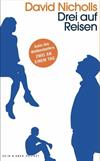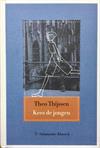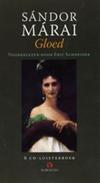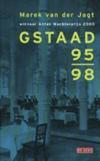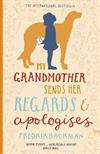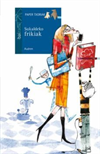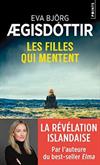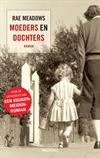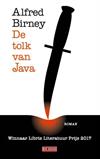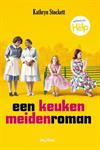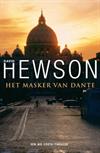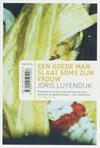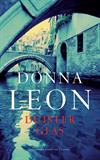
Penguin 70's Series (2005)
1 journaler for this copy...
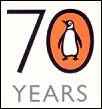 70 Years
70 Years70 Pocket Penguins
'In 1935, after a weekend visiting Agatha Christie in Devon, Allen Lane found himself on a platform at Exeter station searching its bookstall for something to read on his journey back to London, but discovered only popular magazines and reprints of Victorian novels. Unimpressed with the selection available, Lane decided that good quality fiction should be made available to everyone at a reasonable price, and the Penguin paperback was born.
The first Penguin paperbacks appeared in the summer of 1935 and included works by Ernest Hemingway, André Maurois and Agatha Christie. They were colour coded (orange for fiction, blue for biography, green for crime) and cost just sixpence.'
This here entry has been created to hold books in the new series specially commissioned to mark 70 years of Penguin paperbacks - or something like that. Anyway, they are great little novels, short stories, biography & non-fiction extracts from the Penguin...erm...stable, past & present.
I've bought my first 3 (at £1.50 ea) from birthday money, from my children:
28. W G Sebald - Young Austerlitz
(Review: This extract begins with eponymous Jacques Austerlitz recalling his upbringing as Dafydd Elias in Bala, North Wales, the charge (a war-time evacuee or orphan?) of a dour Methodist preacher/minister and his weak cleaning-obsessed English wife. With Sebald’s trademark rambling sentences and lack of paragraphs, headings & chapters, this is quite a mentally challenging book, but rich in detail and symbolism, an incredible amount packed into 50-odd pages. I will get around to reading more Sebald (I read and loved The Rings of Saturn in the past), but for now, this was a satisfying little distraction. And from the sublime to the ridiculous…back to my Ben Elton!)
45. Zadie Smith - Martha and Hanwell
(Review: Nick Hornby gives us 2 deceptively simple and quirky short stories. A huge contrast to the offerings from Zadie Smith, which are ‘simply deceptive’. Let me explain; the 2 stories by NH are self-contained, introduce some characters, who play out a story and come to a satisfactory conclusion – they reminded me a bit of those Sunday night Tales of the Unexpected, neatly packaged stories with a twist. Ah, but ZS tries too hard to be add some artistry to the short story form, both Martha & Hanwell are partially drawn characters, who we meet after some vague sense of a separation or estrangement, and we leave them equally unclear. ZS sees this as a positive, freed from the need to create complete worlds with layers of history, back story and the whole ‘life and times’ of the characters. She says of herself, "Everything about my mind is baggy, inconclusive, garrulous and broad", whereas the (short) story writer "...stops to fondle objects which the pontificating novelist, arms flailing, unconsciously sends flying across the room." Let me summarise, writing fewer words means that that she can concentrate more on the detail, duh, and beggar the poor reader who has to fill in the gaps! I will look forward to her new, book-shortlisted big baggy novel :-)
70. Alain de Botton - On Seeing and Noticing
(Review: I think this was the weakest of the PPs that I have read so far. I know Alain de Botton, and he can do better than this. It feels like a lazy use of some unconnected pop philosophy ideas; for example, that being sad and lonely in service stations is life-affirming (On the Pleasures of Sadness), and that comedy (On Comedy) is a way of identifying with our anxieties and life's inequities, "The underlying, unconscious aim of comics may be to bring about...a world in which there will be a few less things to laugh about.")
I found another one, second hand!
11. Jonathan Safran Foer - The Unabridged Pocketbook of Lightning
(Review: This is a great advert for the Pocket Penguins and for the author. Herewith the beautiful understated and poignant short story A Primer for the Punctuation of Heart Disease (previously a magazine article) and the first 3 chapters of Foer’s new novel, Extremely Loud and Incredibly Close. I found the language, style & erudition in both forms fascinating and it has whet my appetite for more…I’ll probably start with his debut novel. As Foer says in the intro, "(my concerns as a writer:) the difficulties of expression, family and love")
And another one!!
35. Niall Ferguson 1914: Why the World Went to War
(Review: This book, from the cover, "has been specially adapted from Ferguson’s bestselling The Pity of War. It is a radical reassessment of how the world hurtled into catastrophe in 1914". This account does differ from the popular view of the Great War being inevitable due to; a tangled web of alliances & ententes, the smouldering hatred amongst the European ruling powers, the crumbling of the old empires and the sabre-rattling, expansionism & opportunism of the new. Britain did not innocently get caught up defending the sovereign rights of Belgium, but more to shore up France and Russia against a perceived common enemy, and to rescue a seriously divided Liberal government. This extract is big on detail, a somewhat confusing catalogue of diplomatic chess moves, with significant parts played by the ‘hawk’ 1st Lord of the Admiralty Winston Churchill and the ‘doves’ (or at least ‘undecideds’) PM Herbert Asquith and Chancellor David Lloyd George. The part played by the forgotten Foreign Secretary Sir Edward Grey shuttling around Europe (decades before ‘shuttle diplomacy’ had a name) was interesting; but in the end, a sense of inevitability *does* pervade the events, whatever the real deciding factors, the key question regarding the roadmap to a great European War was more about ‘when’ it would occur, not ‘if’.)
11. Jonathan Safran Foer - The Unabridged Pocketbook of Lightning
(Review: This is a great advert for the Pocket Penguins and for the author. Herewith the beautiful understated and poignant short story A Primer for the Punctuation of Heart Disease (previously a magazine article) and the first 3 chapters of Foer’s new novel, Extremely Loud and Incredibly Close. I found the language, style & erudition in both forms fascinating and it has whet my appetite for more…I’ll probably start with his debut novel. As Foer says in the intro, "(my concerns as a writer:) the difficulties of expression, family and love")
And another one!!
35. Niall Ferguson 1914: Why the World Went to War
(Review: This book, from the cover, "has been specially adapted from Ferguson’s bestselling The Pity of War. It is a radical reassessment of how the world hurtled into catastrophe in 1914". This account does differ from the popular view of the Great War being inevitable due to; a tangled web of alliances & ententes, the smouldering hatred amongst the European ruling powers, the crumbling of the old empires and the sabre-rattling, expansionism & opportunism of the new. Britain did not innocently get caught up defending the sovereign rights of Belgium, but more to shore up France and Russia against a perceived common enemy, and to rescue a seriously divided Liberal government. This extract is big on detail, a somewhat confusing catalogue of diplomatic chess moves, with significant parts played by the ‘hawk’ 1st Lord of the Admiralty Winston Churchill and the ‘doves’ (or at least ‘undecideds’) PM Herbert Asquith and Chancellor David Lloyd George. The part played by the forgotten Foreign Secretary Sir Edward Grey shuttling around Europe (decades before ‘shuttle diplomacy’ had a name) was interesting; but in the end, a sense of inevitability *does* pervade the events, whatever the real deciding factors, the key question regarding the roadmap to a great European War was more about ‘when’ it would occur, not ‘if’.)
(30/07)
We were on holiday in Scotland, and I found this in Banchory, half price(!) in WHSmith
2. Eric Schlosser - Cogs in the Great Machine
(Review: 2 extracts from Fast Food Nation about the cutthroat (no pun intended) cattle raising & meatpacking industry in American. The latter seems to be the emphemism for the highly mechnised and corrupt slaughter & butchery cartel*. Unfortunately nothing in here really shocked me, maybe i'm cynical that the ultimate market-led economy has to become perverted by greed, corruption, price-cutting, and lowest-common-demoninator economic values. That doesn't make it right of course. America will really miss her iconic cowboy ranchers when they are gone :(
*I now know where the recent 'antitrust' legislation against Microsoft comes from; the control of certain economies in late 19thC and early 20thC USA by so-called trusts, including the powerful 'Beef Trust'.)
We were on holiday in Scotland, and I found this in Banchory, half price(!) in WHSmith
2. Eric Schlosser - Cogs in the Great Machine
(Review: 2 extracts from Fast Food Nation about the cutthroat (no pun intended) cattle raising & meatpacking industry in American. The latter seems to be the emphemism for the highly mechnised and corrupt slaughter & butchery cartel*. Unfortunately nothing in here really shocked me, maybe i'm cynical that the ultimate market-led economy has to become perverted by greed, corruption, price-cutting, and lowest-common-demoninator economic values. That doesn't make it right of course. America will really miss her iconic cowboy ranchers when they are gone :(
*I now know where the recent 'antitrust' legislation against Microsoft comes from; the control of certain economies in late 19thC and early 20thC USA by so-called trusts, including the powerful 'Beef Trust'.)
(30/07)
Those meanies at WHSmith have 5 Pocket Penguins for £5 cheap, d**n their eyes! My collection has now increased by 5 ;)
1. Lady Chatterley's Trial
(Review: A fitting first title in this series, true transcripts from the trial of Regina v. Penguin Books, October 1960, on the charge of ‘publishing an obscene article which is, in effect, the book Lady Chatterley’s lover’. From the distance of 45 years the arguments seem very quaint, although it still surprises me that the defence won, considering the infamy of the book, the rude word count (which must have been funny in such a stuffy court!) and the contention that it is morally corrupting and manifestly pornographic, or "dirt for dirt’s sake" – who could disagree with that? Although the defence counsel says that pornography originally meant the ‘writings of prostitutes’, which I didn’t know.
A couple of other things made me laugh, DH himself referred to the book’s underlying message as the redemption of the individual and hence society through the ‘reciprocity of tenderness’. Yeah right, it was tenderness that made this a must-read for all teenage boys growing up in the 60’s & 70’s…erm…allegedly!
Last, but not least, and this is probably why the case was lost IMHO, the opening address for the prosecution, "...would you approve of your young sons, your daughters – because girls can read as well as boys – reading this books…Is it a book you would even wish your wife or your servants to read?" Yes this really is from 1960 not 1860!)
3. Nick Hornby - Otherwise Pandemonium
(Review: See Zadie Smith)
6. Richard Dawkins - The View from Mount Improbable
(Review: This extract from Dawkins Climbing Mount Improbable plots an imaginary landscape where Darwinian evolution becomes a logical (if not easily conceivable) journey of one step at a time up a mountain – the peak, or peaks, being where we are now. The subject for this trek (and consequently the Penguin Pocket title) is eyes, and how they have developed, apparently independently in animal kingdom in some 40 to 60 separate ways. RD examines what mechanisms have evolved to overcome physical limitations – or rather, to meet animal needs to ‘see’ prey, avoid harm, improve focussing & colour definition etc. Apparently, and RD repeats this for the incredulous, the particular mountain range is quite straightforward!
In the end the timescales and processes involved beggar belief, I mean they *are* believable but they remain impossible to grasp, in the same way as, say, the ‘infinite’ reaches of space, and infinitesimal sub-molecular worlds. This is ultimately a matter of ‘faith’, in some way similar to either believing or not believing creationism.
A final quote from RD, "Human brains, though they sit atop one of its grandest peaks, were never designed to imagine anything as slow as the long march up Mount Improbable.")
44. Virginia Woolf - Street Haunting
(Review: This is a collection of 6 Woolf short stories, perfect introductions for anyone daunted by her style. And yes she can sustain this poetic, dreamy, contemplative, stream-of-consciousness style for hundreds of pages!
VW takes the most mundane topics and weaves her stories, like a twilight walk across London to buy a pencil (‘Street Haunting’), musing on the possible causes of a mark on the wall – I kid you not (‘The Mark on the Wall’), foraging for interesting stones & broken ceramics (‘Solid Objects’) etc. etc. OK, so it all sounds very dull, but the stories are short & interesting (i.e. unpredictable) enough to be engaging.)
53. Primo Levi - Iron Potassium Nickel
(Review: Extracts from Primo Levi’s autobiographical The Periodic Table with episodes from his life as a student and working as a chemist in Turin, against the back-drop of the European war and rising anti-Semitism. There is a subtle menace building behind the scenes, but Levi doesn’t overstate this, in fact he tries to shut himself away from inconsistencies of real life & dogma, as he sees it, for the rigours and certainties of applied chemistry. Also, in all 3 stories Levi is influenced by a strong male figure...representing the characteristics of the 3 elements respectively, I think?... My lack of Chemistry probably stops me enjoying these stories fully. Although they are quite accomplished, I did not feel particularly engaged, maybe this doesn’t do justice to the full book?)
Those meanies at WHSmith have 5 Pocket Penguins for £5 cheap, d**n their eyes! My collection has now increased by 5 ;)
1. Lady Chatterley's Trial
(Review: A fitting first title in this series, true transcripts from the trial of Regina v. Penguin Books, October 1960, on the charge of ‘publishing an obscene article which is, in effect, the book Lady Chatterley’s lover’. From the distance of 45 years the arguments seem very quaint, although it still surprises me that the defence won, considering the infamy of the book, the rude word count (which must have been funny in such a stuffy court!) and the contention that it is morally corrupting and manifestly pornographic, or "dirt for dirt’s sake" – who could disagree with that? Although the defence counsel says that pornography originally meant the ‘writings of prostitutes’, which I didn’t know.
A couple of other things made me laugh, DH himself referred to the book’s underlying message as the redemption of the individual and hence society through the ‘reciprocity of tenderness’. Yeah right, it was tenderness that made this a must-read for all teenage boys growing up in the 60’s & 70’s…erm…allegedly!
Last, but not least, and this is probably why the case was lost IMHO, the opening address for the prosecution, "...would you approve of your young sons, your daughters – because girls can read as well as boys – reading this books…Is it a book you would even wish your wife or your servants to read?" Yes this really is from 1960 not 1860!)
3. Nick Hornby - Otherwise Pandemonium
(Review: See Zadie Smith)
6. Richard Dawkins - The View from Mount Improbable
(Review: This extract from Dawkins Climbing Mount Improbable plots an imaginary landscape where Darwinian evolution becomes a logical (if not easily conceivable) journey of one step at a time up a mountain – the peak, or peaks, being where we are now. The subject for this trek (and consequently the Penguin Pocket title) is eyes, and how they have developed, apparently independently in animal kingdom in some 40 to 60 separate ways. RD examines what mechanisms have evolved to overcome physical limitations – or rather, to meet animal needs to ‘see’ prey, avoid harm, improve focussing & colour definition etc. Apparently, and RD repeats this for the incredulous, the particular mountain range is quite straightforward!
In the end the timescales and processes involved beggar belief, I mean they *are* believable but they remain impossible to grasp, in the same way as, say, the ‘infinite’ reaches of space, and infinitesimal sub-molecular worlds. This is ultimately a matter of ‘faith’, in some way similar to either believing or not believing creationism.
A final quote from RD, "Human brains, though they sit atop one of its grandest peaks, were never designed to imagine anything as slow as the long march up Mount Improbable.")
44. Virginia Woolf - Street Haunting
(Review: This is a collection of 6 Woolf short stories, perfect introductions for anyone daunted by her style. And yes she can sustain this poetic, dreamy, contemplative, stream-of-consciousness style for hundreds of pages!
VW takes the most mundane topics and weaves her stories, like a twilight walk across London to buy a pencil (‘Street Haunting’), musing on the possible causes of a mark on the wall – I kid you not (‘The Mark on the Wall’), foraging for interesting stones & broken ceramics (‘Solid Objects’) etc. etc. OK, so it all sounds very dull, but the stories are short & interesting (i.e. unpredictable) enough to be engaging.)
53. Primo Levi - Iron Potassium Nickel
(Review: Extracts from Primo Levi’s autobiographical The Periodic Table with episodes from his life as a student and working as a chemist in Turin, against the back-drop of the European war and rising anti-Semitism. There is a subtle menace building behind the scenes, but Levi doesn’t overstate this, in fact he tries to shut himself away from inconsistencies of real life & dogma, as he sees it, for the rigours and certainties of applied chemistry. Also, in all 3 stories Levi is influenced by a strong male figure...representing the characteristics of the 3 elements respectively, I think?... My lack of Chemistry probably stops me enjoying these stories fully. Although they are quite accomplished, I did not feel particularly engaged, maybe this doesn’t do justice to the full book?)
Journal Entry 5 by BookGroupMan from Chester, Cheshire United Kingdom on Tuesday, September 20, 2005
Journal Entry 6 by BookGroupMan from Chester, Cheshire United Kingdom on Tuesday, September 20, 2005
21. The Bastille Falls - Simon Schama
(Review: This is an extract from Citizens presented as a series of shortish essays about the background to the French revolution, and specifically mob rule taking hold of Paris in 1789 culminating in ‘siege’ of the Bastille prison on July 14th. I’m not sure if these 50+ pages are lifted directly from the full history, if so I found it a bit disjointed as well as introducing lots of bit-part characters and random facts. Although saying that I thought the ‘Man who Loved Rats’ and who kept getting imprisoned, escaping and by sheer stupidity getting recaptured was brilliant. And a final thought, despite the incredible myth & industry that has built up around the revolution, the whole affair seemed shambolic, and resulted in only 7 (count them!) prisoners being liberated from the Bastille, including "...four lunatics, two forgers and an aristocratic delinquent")
(Review: This is an extract from Citizens presented as a series of shortish essays about the background to the French revolution, and specifically mob rule taking hold of Paris in 1789 culminating in ‘siege’ of the Bastille prison on July 14th. I’m not sure if these 50+ pages are lifted directly from the full history, if so I found it a bit disjointed as well as introducing lots of bit-part characters and random facts. Although saying that I thought the ‘Man who Loved Rats’ and who kept getting imprisoned, escaping and by sheer stupidity getting recaptured was brilliant. And a final thought, despite the incredible myth & industry that has built up around the revolution, the whole affair seemed shambolic, and resulted in only 7 (count them!) prisoners being liberated from the Bastille, including "...four lunatics, two forgers and an aristocratic delinquent")
Journal Entry 7 by BookGroupMan from Chester, Cheshire United Kingdom on Wednesday, September 21, 2005
I'm quite enjoying alternating fiction & non-fiction, so here are a couple to add to the former...
40. Design Faults of the Volvo 760 Turbo - Will Self
(Review: My first Will Self. The first of these short stories (from ‘Tough, Tough Toys for Tough, Tough, Tough Boys’) was how I expected WS to ‘sound’ from seeing him on TV; a clever and cynical middle-aged Londoner. He cleverly interweaves the angst-ridden affair that Bill Bywater is trying to have (after trying to not have!), with the faults of his ageing car; a metaphor for himself I guess? The second slice of wit, ‘A Story for Europe’ was less expected, but also less satisfying. Not sure I would want to tackle a whole self on the basis of these 2 shorts.)
68. 9th & 13th - Jonathan Coe
(Review: Another new author for me thanks to this great series. I like the cut of Jonathan Coe’s jib, so I shall be seeking out his novels to read :-)
In the intro, JC self-consciously calls this his ‘Collected Shorter Prose’, and only includes a single piece of his journalism/criticism which he feels is worthy of inclusion. I think he’s being coy on this evidence? These are all interesting stories, covering quite a range of ideas and different voices. I thought the title story ‘9th & 13th’ was this hardest to appreciate for a non-musician, the numbers referring to a set of chords which create, “the sound of endless, infinite, unresolved possibilities” – a metaphor for a road-not-taken by the main protagonist. The 2 stories which are the ‘bread’ around this filling are about supernatural forces, or at least the inexplicable events & coincidences that touch all our lives. Even the reportage in the Diary of an Obsession, has hints of a deeper meaning and causal thread being pulled.)
40. Design Faults of the Volvo 760 Turbo - Will Self
(Review: My first Will Self. The first of these short stories (from ‘Tough, Tough Toys for Tough, Tough, Tough Boys’) was how I expected WS to ‘sound’ from seeing him on TV; a clever and cynical middle-aged Londoner. He cleverly interweaves the angst-ridden affair that Bill Bywater is trying to have (after trying to not have!), with the faults of his ageing car; a metaphor for himself I guess? The second slice of wit, ‘A Story for Europe’ was less expected, but also less satisfying. Not sure I would want to tackle a whole self on the basis of these 2 shorts.)
68. 9th & 13th - Jonathan Coe
(Review: Another new author for me thanks to this great series. I like the cut of Jonathan Coe’s jib, so I shall be seeking out his novels to read :-)
In the intro, JC self-consciously calls this his ‘Collected Shorter Prose’, and only includes a single piece of his journalism/criticism which he feels is worthy of inclusion. I think he’s being coy on this evidence? These are all interesting stories, covering quite a range of ideas and different voices. I thought the title story ‘9th & 13th’ was this hardest to appreciate for a non-musician, the numbers referring to a set of chords which create, “the sound of endless, infinite, unresolved possibilities” – a metaphor for a road-not-taken by the main protagonist. The 2 stories which are the ‘bread’ around this filling are about supernatural forces, or at least the inexplicable events & coincidences that touch all our lives. Even the reportage in the Diary of an Obsession, has hints of a deeper meaning and causal thread being pulled.)
My first PP of 2006. I've set myself the target of reading another 20 this year.
Summer in Algiers by Albert Camus
Disappointing, turgid-apathetic, soulless (deterministic?), dry, African, prose*
*ps. I’m using fewer words than usual to counter-balance Camus’s profligacy, and because I’m behind with my reviews :)
Summer in Algiers by Albert Camus
Disappointing, turgid-apathetic, soulless (deterministic?), dry, African, prose*
*ps. I’m using fewer words than usual to counter-balance Camus’s profligacy, and because I’m behind with my reviews :)
I'm moving my 2006 reviews to another e-book entry :)

